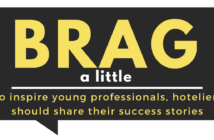Tackling a major project during an economic downturn
As anyone reading this can surely attest, the pandemic introduced countless challenges and uncertainties to the hospitality industry. When the pandemic hit the U.S. in early 2020, the Keystone Development + Investment team was ready to sign an agreement with a contractor to start building a new hotel in downtown Conshohocken, a dense, corporate-heavy Philadelphia suburb. Almost overnight, the hotel became the riskiest play at the worst possible time.
The then-proposed Conshohocken hotel was being touted as a primary feature of Keystone’s $325 million SORA West development. The 520,000-square foot site, which includes the global headquarters for Fortune 10 healthcare giant AmerisourceBergen, was slated to redefine this suburban skyline and preserve Conshohocken’s historic firehouse. However, thanks to the pandemic, what was once a sure thing was now in serious jeopardy.
But, every cloud has a silver lining, and setbacks can often be the perfect catalyst for growth opportunities, though they might not be obvious at first glance. Here are three key principles the Keystone team discovered during the process of planning, financing, and building a hotel during a time of massive difficulty and unpredictability.
 1. ACT FAST AND WITH CLARITY
1. ACT FAST AND WITH CLARITY
The Keystone team realized the economy, business, and hospitality environments would look very different for an uncertain length of time and went pencils-down to determine what needed to change in this hotel’s design and construction as a result.
Since the pandemic cut so deeply into all elements of hospitality – from business travel to social distancing and safety measures – it made sense to pivot and implement a redesign. In an increasingly unpredictable world, size is a primary consideration. Reducing the number of rooms and expanding amenity offerings adds value while staying efficient with scale. This focus on redesign gives properties additional flexibility across multiple market sectors to protect against demand fluctuations. The pandemic-induced focus on access to clean air also was a signal to hotel developers to incorporate outdoor space wherever possible.
2. OPEN UP POSSIBILITIES WITH FLEXIBILITY
As pandemic challenges gave way to supply-chain disruptions, Keystone continued to adapt throughout construction. The team replaced some regularly used, but unavailable, supplies with different building materials. In some cases, the project made use of use local Pennsylvania manufacturers for room and lobby furniture, which would typically be purchased overseas.
Supply-chain issues play a major role in how hotel developers build projects. With procurement teams spending millions on furniture, finishes, or equipment for food and beverage or fitness operations, taking time to analyze sourcing and potential impacts from supply-chain disruptions will help hotel projects stay on track.
Incidentally, focusing on the supply chain will also help control costs, maintain sustainability and safety requirements, and achieve the level of quality the project requires. Developers in the midst of vital renovations or upgrades can’t afford to hit pause in such a competitive industry, so staying aggressive with supply chain challenges is a must.
3. MIND THE DETAILS
Keystone managed to get the hotel financed when the capital landscape for new hotel construction had nearly evaporated. The project is well on its way to completion, on time and on budget, with a planned fall 2022 opening – an ideal time as the hospitality industry experiences a projected resurgence.
Hotel developers can find similar success by being attentive and responsive to an ever-changing business environment. Projects that authentically connect to a demand-generating community, feature exciting amenities and atmosphere, and are built with guest value in mind will find their way to completion in any market condition.
Ultimately, it comes down to mindset. With changes in the business world accelerating, it doesn’t take much to knock the world economy off its axis. Will you be ready with a plan when that tilt comes? Hotel developers must morph into mixed-use experts and think in more visionary ways.
Those bold developers who are unafraid of heading into the unknown with a strong vision and plan will create the most attractive destinations.


 Jennifer Rosenberg
Jennifer Rosenberg

